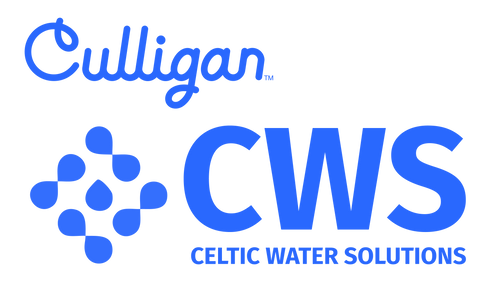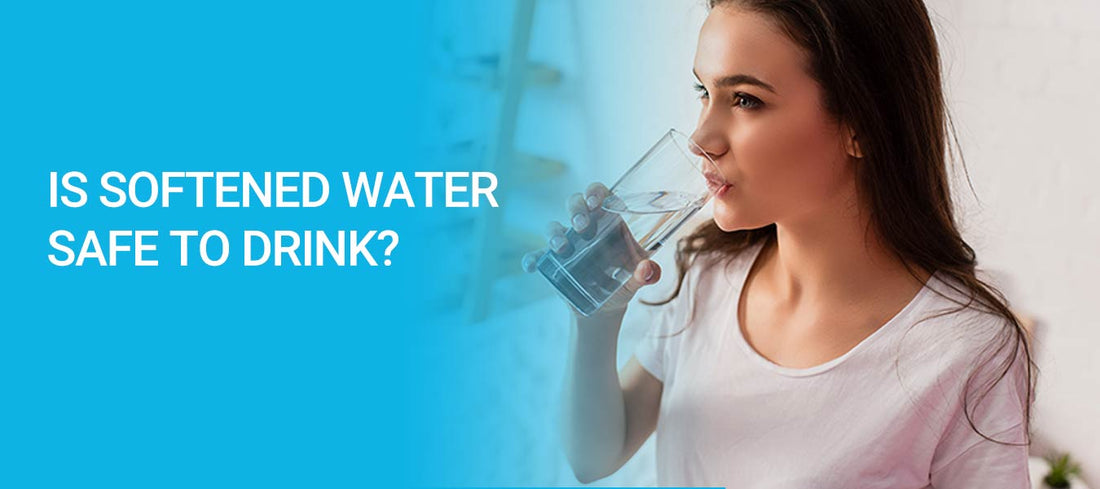Water softeners offer an excellent solution for a wide variety of water problems, from limescale buildup on appliances to irritated & dry skin. While the benefits of softened water are clear in most cases, many people are confused about whether or not they should be drinking softened water. Can you drink water from a Water softener? Yes, is the answer, but it depends. In this blog, we discuss this in greater detail.
Why the Confusion?
The role of salt in the water softening process may be what has many consumers wondering softened water is safe to drink because the softening process uses bags of salt. It is critical to note that salt is only used to soften the resin that acts on the water – no salt gets into the water supply itself. Hard water flows through the softener unit, which is packed with resin beads. These resin beads are coated with sodium ions. In a process called ion exchange, calcium and magnesium minerals are removed from hard water by clinging to those resin beads while the sodium ions are then released into the water and through your home. In softened water, the sodium level increases. Sodium is not the same as salt (sodium chloride). In itself, sodium is not considered a risk. We all need a little bit of it in our diet because it’s critical to the overall function of our body. However, too much sodium drives up blood pressure which can lead to heart problems. Therefore, the European Union (Drinking Water) Regulations, 2014 sets a 200 ppm (or 200 mg/litre) maximum for sodium content in drinking water.
How much Sodium is Added During Softening Process?
The amount of sodium added to water from the water softening process depends on the hardness of the water supply. If your water is very hard, a large amount of calcium and magnesium will be replaced by sodium, which could increase your total sodium level to over the maximum set by regulations. A Water softener will add 46 mg/litre of sodium for every 100 mg/litre of calcium carbonate (hardness minerals) taken out of the water. If you have a hardness of 200 mg/litre (or 200 ppm), a softener will add 92 mg of sodium to every litre of water. You have to remember that your drinking water will already contain some sodium, which is why adding more can make it unsafe to drink. To put this into perspective: 400 mg of sodium equates to a pinch of salt. Current government statistics show on average we consume 3240 mg of sodium or 8.1 grams of salt – over a teaspoon – each day. If the water hardness in your home exceeds 400 mg/litre of calcium carbonate, your Water softener will push the sodium level in your water over the threshold. This will make having a separate drinking tap with unsoftened water mandatory.
Should Babies Drink Softened Water?
Information provided by the WRAS recommends that the sodium limit should not be exceeded when preparing formula for babies because their kidneys are not fully developed yet to process the increase in salt. Their formula and food are made with the correct sodium levels and any additional sodium can alter this balance and can cause dehydration. For additional information on what kind of water to use for preparing baby formula, follow this link. Additionally, it is also recommended that individuals who are on a prescribed low-sodium diet should not drink softened water due to the increased sodium levels.
How to Make Softened Water Drinkable?
While it is true that a Water softener will add sodium to the water you drink every day, the amounts are very small. If you have a sodium-restricted diet or feel like you can taste the sodium, adding a drinking water filter is a good solution to both protect your home and appliances from hard water and have refreshing water straight from your tap. When we install a water softener, we include a natural water supply drinking water tap in the package. That means you will have a separate tap that provides unsoftened water to drink. As such we usually recommend a reverse osmosis system that uses a semi-permeable membrane to remove sodium and other large particles from the softened water. Therefore, it leaves you with sodium-free, chemical-free, great-tasting and healthy water. Celtic Water Solutions is a leading name in Ireland’s water filtration industry and have been serving our customers for nearly 20 years now. We follow a consultative approach towards water treatment and recommend the best solution to our prospective customers depending on the water quality in their homes and needs. Talk to our sales team to discuss the best option for you.

